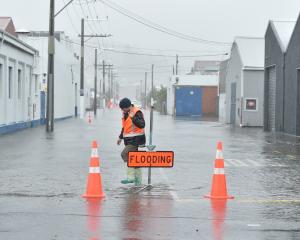We appear poised to become a surveillance society.
But what data can be collected? By what means can we be surveilled? And what steps can we take to protect our privacy?

The Government already has motor vehicle registrations, voting records, tax records and property records. If they want to they can access telecommunication and banking records. Technology makes it possible to access email, chat logs, any stored data, voice traffic, file transfers and social networking data.
How information can be obtained:
It is virtually impossible to live without using or coming into contact with devices designed to, or capable of, tracking and revealing our every movement. Walk down the street and you are likely to be recorded by more than one of New Zealand's estimated tens of thousands of closed circuit television systems (CCTV).
In some United States cities, CCTV cameras are linked to facial recognition systems. This has not begun in New Zealand, but the Government announced this month that it had started trialling face-on-the-fly technology at airports.
Higher in the sky, satellites are now capable of seeing what you hold in your hand.
Online computers can be hacked in one minute. And existing protective measures cannot stop a sophisticated new attack strategy. The source code for writing attack strategies is freely available on the internet and can easily be embedded on malicious websites.

It is well known that the GPS software in phones can be used to track people's movements. What is less widely known is that photos taken on GPS-enabled phones can have location details embedded in the image file. Someone with the know-how can download a person's photo from a social media site and extract the exact location where the photo was taken, often the person's home.
What you can (or cannot) do to protect your privacy:
Here are some thoughts from people with an interest in surveillance.
Wayne Idour, private investigator, Dunedin: ''There is nothing you can do. If they are going to do it, they will do it. And with the technology that they have, you'd never know ... At the end of the day, why worry about something you don't know about ... You can become paranoid can't you, and that's not a good way to go.''
Nicky Hager, investigative journalist, Wellington: ''I use encrypted email but only when it really matters. I also have my computers and hard drives very strongly encrypted ... But for anything really sensitive I just don't use the internet or telecommunications. I believe privacy precautions need to be a balance between sensible care and not wasting our time on unnecessary worry.''

Peter Cresswell, blogger and Libertarianz candidate, Auckland: ''There are very few steps you can take apart from trying to keep as much as possible off the internet. All the measures that it seems you can take, like encrypting emails, make life much more difficult.''
Assoc Prof Hank Wolfe, computer security and forensics lecturer, Dunedin: ''You can buy a firewall for your phone. Cambridge University has one of the first ones in development.
''If you have an Android phone, you can buy an alternative operating system ... When any of your applications asks for information like where are you, it lies.
''On the internet you should always have an up-to-date firewall and up-to-date malware.
''The one thing you can do to protect your privacy in the electronic age is use strong cryptography. Cryptography is the art and science of codes and cyphers.
''The thing with cryptography, as long as you do not write the keys down, or put them anywhere except in your mind, then you get to choose whether you reveal them or not. ''












